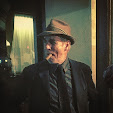Recently Sarah Mclellan, the Artistic Programs Affiliate at Theatre Communications Group, the fantastic organization that holds regional theatre together in this country asked me for an Artist Statement as a recipient of the Fox Fellowship for Distinguished Achievement that answered the following question:
"Describe what type of theatre you would like to create and/or support and sustain."
It was to be 100 words maximum.
That's about two paragraphs.
It was hard to distill my ideas into 100 words.
Here then are a few of my notes on the question.
Great Theatre
Not good.
Great.
There is no prearranged, pre approved market researched formula that is the absolutely sure fire way to create it.
There are no set ingredients.
No prescribed parameters.
No specific plotline.
No minimum budgets.
No maximum budgets.
There is no best cast size, favored setting or preferred time period.
Some say there is a minimum requirement: four planks and a passion, but I’ve seen it on the cobblestones of Edinburgh and at the Dorothy Chandler Pavilion, so it doesn’t necessarily rely on the splendor of the venue to do its thing. . I was recently in Pulitzer Prize winner Donald Magulies’ Shipwrecked! and engaged in some beautiful moments of low-tech wizardry utilizing only a teeter totter.
It’s as hard to define as it is to create but you know it when you see it.
Great Theatre.
When I go to the theatre I want to witness a ritual.
I want to be invited on a ride.
I want to learn a secret.
Meet a stranger.
Laugh.
Feel what someone else is feeling.
Cry.
I want to be stirred and surprised, angered and aroused.
I want it all. I want to be educated and entertained.
I want catharsis and giggles.
I see the actors as holy vessels for ancient archetypes and as the dream speakers of the tribe.
I see them as the “brief, abstract chroniclers of the times” and as ridiculous clowns.
I’m one of them so I tend to romanticize.
"We are what we repeatedly do. Excellence, then, is not an act but a habit." ~Aristotle
I try to imagine what kind of theatre experience would create the kind of “habit of excellence” Aristotle was talking about.
Increasingly I am sensing a movement toward theatre opening its doors to other disciplines. I’ve seen Theatre finding its own roots in mask with Cirque du Soliel. The application of martial arts skills in a recent production of Midsummer Night’s Dream and acrobatics greatly enhanced a production of Pericles.
This past year on the Fox Fellowship I’ve watched everything from the exacting delicacy of a slap stick routine in a Chekhov play to the seemingly incongruous circus skill woven into a Jacobean tragedy.
I have seen video screens enhancing productions (and detracting from others) and texts written in Sanskrit.
I’ve seen Macbeth performed with three mini coopers and Ibsen by dwarfs.
I have marveled at the physical precision of Noh performers In Japan and the emotional abandon among the chorus of actors in the ancient theatre at Epidarus, Greece.
Why shouldn’t theatre borrow/steal/purloin abscond from these other skill sets?
The Zen saying is: There are many paths up the mountain.
I now see Dance, Mask and Martial Arts as wonderful co conspirators in a theatre that includes ritual and spectacle and above all, the human tenderness that these three disciplines foster and develop in such essential ways. That is the theatre that I want to be a part of.
Great Theatre.
Subscribe to:
Post Comments (Atom)

No comments:
Post a Comment